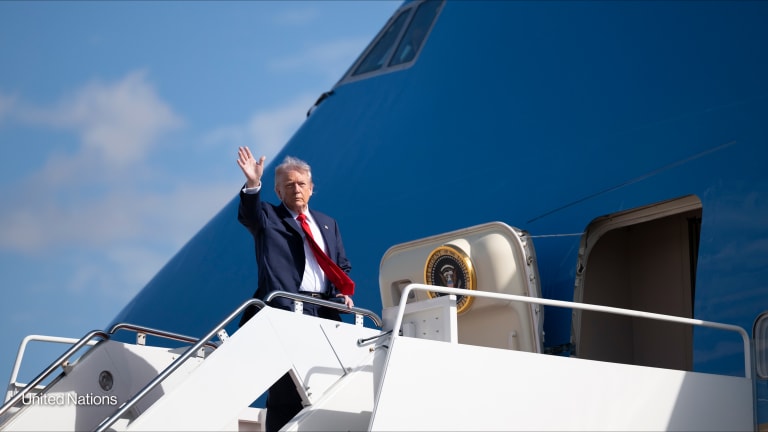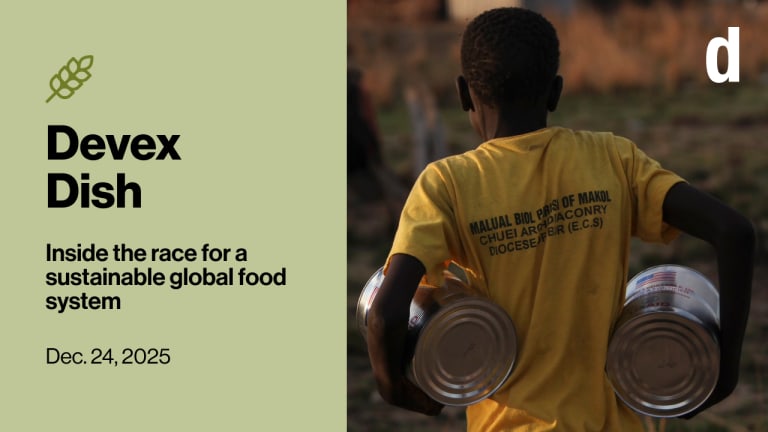
As we approach another federal election in Australia, global issues seem to be pushed to the periphery in favor of what we refer to as “navel gazing,” a colloquial term for preoccupation with ourselves.
There is however one thing that all Australians seem to be able to agree on as the election approaches — we all want leaders who follow through on their commitments. We want leaders who finish the job they started.
And both major political parties have made a commitment to the poorest people in our world. In 2000, we joined all nations in the Millennium Declaration. In 2005, the Coalition government under Prime Minister John Howard committed to doubling aid. In the lead up to the 2007 election, Kevin Rudd promised a Labor-led government would increase aid to 0.5 percent of gross national income by 2015. On many occasions since, both parties have affirmed a commitment to increase aid to 0.5 percent of GNI (initially by 2015) on the way to reaching the internationally agreed target of 0.7 percent in the near future.
Sadly, Thursday’s announcement by the Liberal and National Coalition parties that they would cut a further AU$4.5 billion from the aid budget over the next four years confirmed that the bipartisan commitment to an ambitious scale-up of aid is now in tatters.
Aid budget raids
While the Labor-led government should be applauded for leading Australia to its largest aid program in history in absolute terms, their decision to push the timetable to reaching the 0.5 percent target out by two years to 2017-18, wiped an estimated AU$6 billion from the budget forward estimates over the last 18 months.
Where we might have expected the opposition parties to oppose these delays, their response was a deafening silence. It now seems clear that this silence was motivated by a preemptive plan that they would themselves raid the aid budget to pay for domestic programs. The Coalition’s costings, if elected, could mean that aid will be at the same levels in 2016-17 as it was in 2012-13, and would represent a decrease in giving as a proportion of GNI from a projected 0.37 percent this year down to 0.32 percent in 2016-17.
Last year, Australia’s aid program of just over AU$5 billion helped — to name just a few of its achievements — educate more than one million children, provide life-saving vaccines to over 2 million kids, and support over 16 million people in situations of conflict or disaster. Wiping between AU$6-10.5 billion from our aid’s four-year budget cycle (depending on which party is elected) is not just a stroke on an accountant’s keyboard; it clearly has a significant impact on the lives of real people.
Opportunity cost
Despite these setbacks, a strong constituency of supporters in Australia remains committed to calling for a reversal of these decisions and a correlated increase in aid. Why is it so important that Australia remain firm to its commitments to spare no effort in support of achieving the Millennium Development Goals?
The most obvious and pressing reason is the opportunity cost in terms of our contribution to the reduction of poverty and meeting the development challenges in our region and beyond. I have already noted that Australian aid saves and improves people’s lives, helps communities respond to and recover from disasters, and — when it is spent effectively — significantly contributes to long term development.
For example, increasing Australia’s contribution to basic health, and particularly water, sanitation and hygiene programs would improve health, nutrition and economic outcomes. Diarrhea is the second-largest killer of children worldwide, with 1.4 million preventable child deaths each year. Inadequate water, sanitation and hygiene also contribute to stunting in children, absenteeism in school and losses in worker productivity. Estimates suggest that for every $1 invested in water, sanitation and hygiene, $5 dollars is returned in improved productivity and avoided health costs.
Meeting our global commitments is also part of being a responsible global citizen. There is a moral imperative to do what we say we will do. When we make commitments, other people make plans based on those commitments. The Paris Declaration affirms that aid is most effective when it is harmonized with partner country programs. That can only happen effectively when aid is predictable, transparent and guaranteed over the medium to long term.
Unfortunately, recent government raids on the aid budget have undermined the principles of partnership. In Dec. 2012, the government diverted $375 million (7 percent) of the aid budget from poverty-reduction programs overseas to meet the rising costs of domestic asylum seeker support. It took months before the government would specify which programs would be affected, and partner agencies and countries were not consulted when the decision was made.
Through that diversion, almost every program and partner country saw a reduction in the aid that had been committed less than a year earlier. Australia’s contribution to the Global Fund to Fight AIDS, Tuberculosis and Malaria was cut by AU$10 million. Climate change adaptation programs in Vanuatu, Tonga, Indonesia and the Philippines were axed. Programs for water, sanitation and hygiene, for maternal and child health, for education, and for improving livelihoods were all delayed or downsized. The impact of those decisions — on the outcomes and sustainability of the projects that were affected — is yet to be assessed, but it will certainly not have been a positive one.
Too much at stake
Thursday’s proposed cuts also significantly undermine structures that have been set in place in order to effectively manage a planned scale-up within AusAID, local NGOs and our partners.
I hope that once the election is over, we will have some space to lift our eyes from our own preoccupations. When we do, I hope and pray we will realize that there is simply too much at stake to let our aid commitments slip down the priority list of a new government.
I hope we will see a reversal of planned cuts to the aid budget. No diversions of aid to meet domestic asylum seeker support costs — just a steely resolve to lead Australia in making our contribution to the eradication of extreme global poverty.
I hope we will see a firm commitment to increasing and improving Australian aid. That’s what we want from our leaders.
Join the Devex communityand gain access to more in-depth analysis, breaking news and business advice — and a host of other services — on international development, humanitarian aid and global health.








